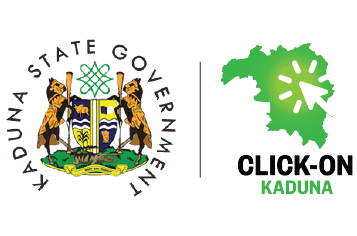By Achadu Gabriel, kaduna
As at year 2000, internet penetration in Nigeria was just 0.06 per cent, while in the whole of the African continent, the penetration was merely 1.2 per cent, indicating that only a small fraction of Nigeria’s population and Africans in general access the internet.
This is in sharp contrast with Sweden which had 35 per cent penetration, the highest rate in Europe.
However, with the steady expansion of the satellite technology and mobile telecommunication service providers in Nigeria, internet penetration experienced slow but steady growth, such that by 2009, internet penetration had risen to 9.3 per cent.
This was a time when internet penetration in Northern Nigeria and Kaduna State in particular was very low due to fewer number of internet service providers.
With a huge youth population and high number of tertiary institutions, one can only imagine the demand for internet services amidst short supply in Kaduna state as at 2009.
To bridge the gap, Escom Infobahn stepped in to quench the growing hunger for quality and affordable internet services in Kaduna metropolis.
Between 2009 and 2014, the café provided internet services to no fewer than 324,000 clients in Kaduna metropolis.
The café, located at store No 1, Aliyu Turaki Road, Malali, Kaduna, wasn’t just a typical place where people browsed the internet; it was more of a community hub.
“We served both in-house customers and provided Wi-Fi services to homes within a 5-km radius” said one of the workers at the café, Mr Tunji Osibanjo.
Osibanjo said working at the café was quite an experience for him, adding that between 200 and 250 residents visited the café daily to access different services.
He identified some of the services as printing, purchasing internet tickets, attending training sessions, or simply needing help navigating the internet.
He said that the most sought-after service within the period was helping customers to create and use e-mail addresses.
According to him, many of the residents were new to digital communication and required assistance to set up their first emails.
“The location of the café played a key role in improving our customer base.
“Situated close to the Federal Training Centre and Kaduna Capital School, a model secondary school, the students frequently flocked in after school for one service or the other.
“Also, the location of the café between residential areas and educational institutions really boosted our daily traffic.
“While the atmosphere and services were great, sometimes we struggled to manage the rush periods, especially when students flooded-in after school hours.
“At times we were overwhelmed that we occasionally had delays in meeting customers’ demands promptly.”
Osibanjo, a graduate of Mechanical Engineering from Ahmadu Bello University Zaria, said that working at the café had a huge impact on his professional growth and personal life.
He said that the café provided him easy access to the internet, which helped immensely in improving his software skills after graduating from ABU Zaria.
“My software skills grew after a year at the café, which enabled me to secure a PTDF scholarship to study a master’s degree in Petrochemical Engineering in University of Port Harcourt,” he said.
The story was no different for Mr Mujahid Mohammed, another worker at the café, who described his experience as simply “enjoyable and insightful”.
Mohammed said that beside email setup, printing services and internet browsing, students equally patronised the café for help to research school assignments and other online educational resources.
He said that daily interactions with people from diverse backgrounds had improved his customer relations and communication skills.
“I learned how to handle different kinds of customers, manage conflicts, and work efficiently under pressure, particularly during peak hours when the students come in after school.
“This gave me a strong foundation in business management that later helped me in my studies of Business Administration at Kaduna Polytechnic,” he said.
Mohammed, currently working at Dalema Supermarket, Kaduna, heading the Pharmacy Unit, said that the café felt like a second home, due to the approachable nature of the founder and the friendly team.
Speaking on the challenges, Mohammed said handling technical issues swiftly, especially during busy periods was a major setback in the operations of the café.
“There were times when the equipment malfunctioned or connectivity slowed down, which frustrated some customers.
“We did the best we could, but quicker technical solutions could have greatly improved the overall customer experience,” he said.
The founder of the café, Sheriff Adepoju, said that the internet café was established in 2009 to bridge the internet access gap in Kaduna metropolis, challenged by limited and expensive broadband in many areas.
He noted that smartphones were just emerging at the time, with iPhone launched in 2007, while Android was in its early stages of penetration in Nigeria and Kaduna state in particular.
He pointed out that social media platforms like Facebook, Twitter, and YouTube were growing, adding that many residents relied on internet cafés for faster or cheaper connections.
Adepoju said that his inspiration to invest in internet service began when he had his first desktop computer in 1996 and became intrigued with computers.
“I loved research and didn’t have access to quality internet service and I thought, why don’t I turn this lack of internet access into a business?
“I took a bold step by taking a loan of N6,300,000 from my parents after I sold the business idea to them.
“The money was used to purchase computers, networking equipment, rent, and VSAT equipment for the first phase of the project.
“The second phase was the installation of a 100-feet tower, where I installed a mikrotik wireless router to provide wireless service to residents, a few months after the café became operational,” he said.
Adepoju said that the internet was fast and uninterrupted, with unlimited download service provided by GILAT in Israel, at 740 dollars monthly for the Ku Band VISAT.
He explained that with the wireless router, covering a five-kilometre radius, clients could buy tickets and go home to browse the internet.
According to him, Escom Infobahn was the first café in Kaduna North to offer such services.
“It also became the sales and information point for Inye in Kaduna, the first indigenous tablet pc in Africa,” he said.
He added that there were only two competitors in the internet space in the whole of Kaduna at the time, Lexo Computers and another outfit in Barnawa axis.
He said that the café began with 10 computers and opened for business from 9 a.m. to 9 p.m. Mondays to Saturdays, with pay per hour and per day, and hosted training on computer literacy.
“This was one of the avenues that people got to learn about the internet and opened their first e-mail addresses.
“I recently met someone in the United States and surprisingly, he told me that his first e-mail address, which he still uses, was opened at Escom Infobahn.
“The café later became a resource centre for job seekers and registration for exams like the Joint Admission and Matriculation Board, and military and the Police recruitment portal, including checking WAEC results,” he said.
Adepoju said that the successes recorded encouraged him to open another outlet at No. 5 Bonny Road, Off Kigo Road, Kaduna.
He, however, said that the introduction of improved and cheaper broadband dongle services by MTN at the time, made it easier to set up a café business.
This, he said, had led to the proliferation of internet cafes across Kaduna metropolis, causing existing cafes to begin to struggle due to intense competition.
He added that individuals also began to access internet services on their laptops and desktops using the MTN broadband dongle.
Eventually, the café was handed over to an investor in 2012 to run it and was closed down in 2014 due to unremitted payments by the investor.
Today, Kaduna residents access the internet through various methods, including mobile networks and fixed-line internet services, with mobile operators like MTN, Airtel, Glo, and 9mobile offering 3G, 4G, and 5G coverage.
| ReplyForwardAdd reaction |





